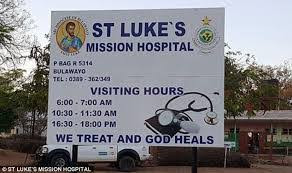
LAST Sunday we witnessed the sombre occasion that was Nelson Mandela’s funeral. It unfolded on TV screens all over the world and for a few hours the whole world travelled to the Village of Qunu which is located 32km outside of Mtata, Eastern Cape.
I have worked on several economic development projects in the Eastern Cape which is one of the country’s most impoverished provinces. You cannot imagine the shock which registered on my face when I landed in Mtata for the first time three years ago.
Outside the colonial cities of Port Elizabeth and East London lies sprawling poverty. It is in this province where you find the former homelands or Bantustans of Ciskei and Transkei. The time I spent in the Eastern Cape that reminded me of the glaring economic disparities that exist in this country beyond the economic hub of Gauteng. Ironic considering it is also home to one of the country’s most iconic personalities.
However, that dome shaped tent that was hoisted up on Sunday — one would be forgiven for thinking you were back at the Sandton Convention Centre. The billionaires’ row occupied by Oprah Winfrey, Richard Branson and Patrice Motsepe was just a sprinkling of the high profile mourners in attendance who had made the water tight guest list of 4 500.
Understandably it was a high profile funeral and it would have been impossible to accommodate everyone. However, I felt some injustice in that the villagers of Qunu, who undeniably should have been among the 4 500 were excluded. They were made to watch the proceedings from television screens like the rest of the world. A shame in my opinion considering that these are the very people that Nelson Mandela lived with.
It is well documented how Mandela would often cross the N2 Highway to commiserate with the villagers. As is our culture, it’s his neighbours that should have been there to bid him good bye yet the preoccupation was in accommodating the rich and famous. Two days before the funeral they were sternly reminded not to come anywhere near the home which was heavily patrolled. After hearing this it is then I realised why there had been no singing or congregating by villagers at the deceased’s home which is normally the procedure culturally.
There was absolutely no ubuntu in sidelining villagers who in this instance were nobodies in favour of the somebodies. This is where we often miss the point. In the furore of the guest list other notables like Archbishop Desmond Tutu almost got sidelined after some misunderstanding around his accreditation.
The funeral began with much aplomb with the army band accompanying the coffin draped in the national flag. Senior warrant officers of the South African Armed National Defences were the pallbearers who marched with dignity in their uniforms.
- Chamisa under fire over US$120K donation
- Mavhunga puts DeMbare into Chibuku quarterfinals
- Pension funds bet on Cabora Bassa oilfields
- Councils defy govt fire tender directive
Keep Reading
Jubilant songs greeted the coffin which later gave way to more sober eulogies. Ahmed Kathrada, who spent many years in prison with Mandela gave the most moving tribute. He shared a friendship with the icon which began in 1946. He spoke of how Mandela had now gone to join the A Team which comprised long gone ANC stalwarts like Chris Hani, Albert Luthuli, Oliver Tambo, Walter Sisulu, among many others.
This served to remind us that the struggle had not been fought alone but there were other struggle icons who had helped pave the history of this country. Moving eulogies from President Jakaya Mrisho Kikwete (Tanzania) and former President Kenneth Kaunda (Zambia) also reminded us of the role that Africa helped in the liberation struggle of South Africa.
At a time when the West turned it’s back to the atrocities of the apartheid regime with it was countries like Ghana, Nigeria, Zambia and Zimbabwe who harboured Umkhonto weSizwe and gave a home to exiled cadrés. Yet when xenophobic attacks are unleashed on foreigners this history is often forgotten.
Not to be outdone, President Joyce Banda of Malawi, who as one of two of the continent’s female presidents, gave a moving accolade. Mandela would have been proud of Banda as he was always rallying towards female empowerment and participation in politics and civic duty. After all the eulogising and sermonising, Mandela was finally laid to rest a little after midday despite the family’s incessant pleas that according to Xhosa culture the icon be laid to rest at noon.
Only 450 were privy to that private moment. Like most funerals, it is that sinking moment when the casket is finally lowered in the grave that the realisation sinks that the deceased is finally gone.
And it is with that finality that the world finally said goodbye to Nelson Mandela. Nonetheless his legacy will live on. Lala ngoxolo Madiba.
Sukoluhle Nyathi is the author of the novel The Polygamist. You can follow her on Twitter @SueNyathi










